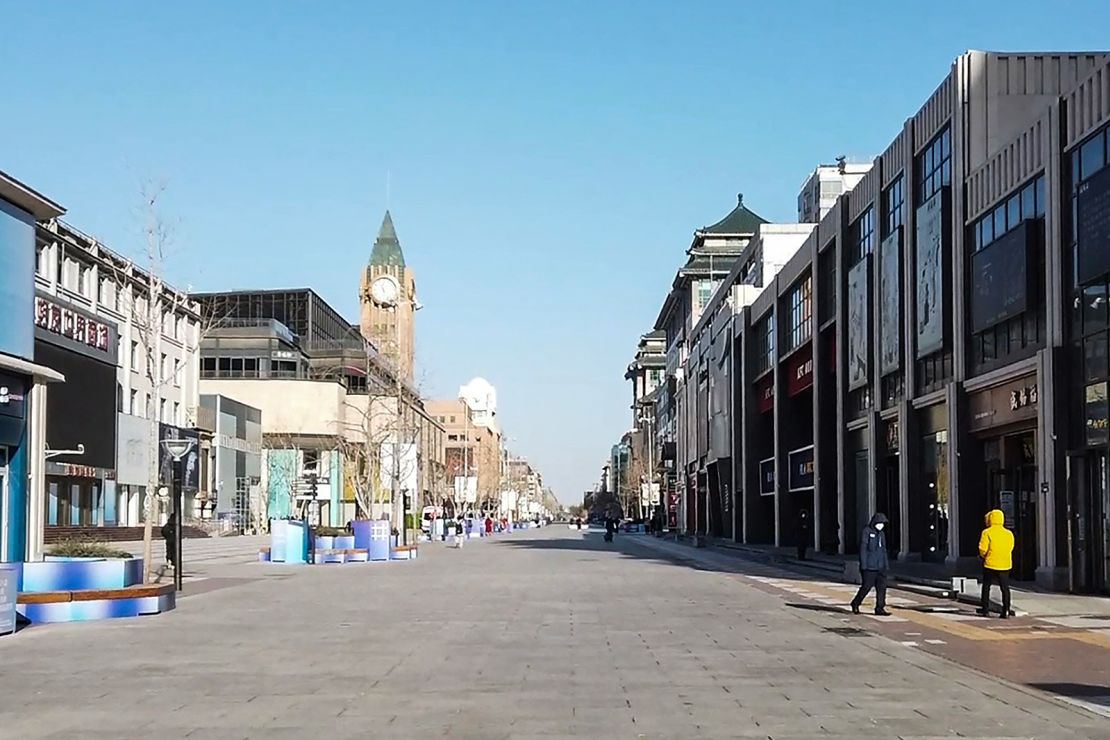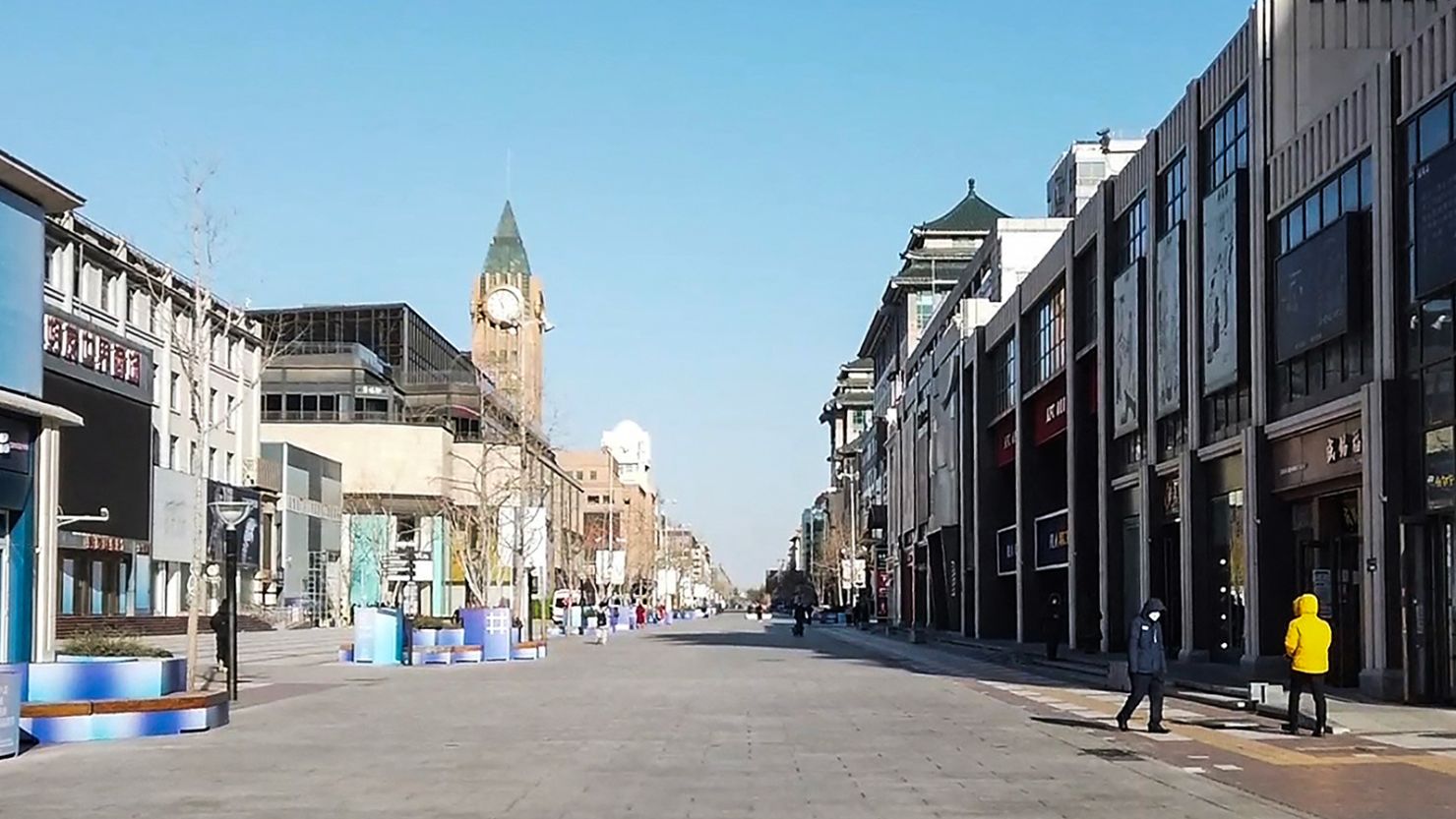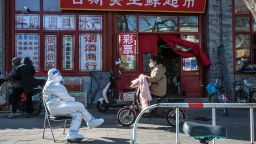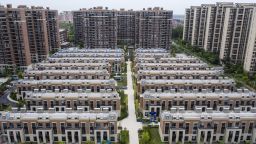The end of pandemic restrictions in China will eventually usher in a strong economic rebound as the country learns to live with the Covid virus, according to economists, even as a slew of data showed business activity plummeting in November.
Retail sales declined 5.9% last month from a year ago, according to the National Bureau of Statistics. It was the worst contraction in retail spending since May, whenwidespread Covid lockdowns pummeled the economy.
Industrial production only increased 2.2% in November, less than half of October’s growth. Investment in the property sector, which accounts for as much as 30% of China’s GDP, plunged by9.8% in the first 11 months of the year. Property sales by value plummeted by more than 26%.
Unemployment worsened, rising to 5.7% last month, the highest level in six months.
November’s economic slump happened before Beijing rolled back its repressive pandemic restrictions earlier this month. Top leaders signaled at a key political meeting last week that they will shift focus back to growth and seek a turnaround of the economy next year.
“The November data should be the last batch damaged by zero-Covid,” Wei Yao and Michelle Lam, economists for Societe Generale, wrote in a research note.
But it may be the second quarter of 2023 before the earlier-than-expected end to Covid curbs sparks a robust recovery. There’s still a risk of supply chain disruptions and muted demand as Covid outbreaks sweep through a population with limited immunity, they said.

Upgrading forecasts
Economists are generally expecting growth to slump to between 2.8% and 3.2% this year, one of the lowest levels since 1976, when former leader Mao Zedong’s death ended a decade of social and economic tumult.
On Wednesday, two of the country’s top ruling bodies, the Central Committee of the Communist Party and the State Council, issued a strategic plan to expand domestic demand and stimulate consumption and investmentuntil 2035.
Many investment banks have since become more optimistic about China’s prospects.Goldman Sachs upgraded its 2023 growth estimate to 5.2% from 4.5% on Thursday, saying it expected consumption and services to kick in eventually. Societe Generalerevised up its 2023 growth estimate to 5.3%, while Morgan Stanley upgraded its forecast to 5.4%.
All of them cited the faster pace of reopening and continued stimulus measures from Beijing. November’s economic downturn was a key reason for Beijing to reverse course, they said.
“The plunging economy is likely to be one factor behind the policy pivot in both zero-Covid and property,” said Larry Hu, chief China economist at the Macquarie Group. In mid-November, Beijing rolled out sweeping measures to rescue the country’s embattled real estate sector.
“Then it turns out that the exit of zero-Covid has been much faster than expected,” Hu said, adding it would pave the way for a strong economic rebound next year.
Bumpy road
Three years of lockdowns, mass testing, and quarantines have stoked public anger and placed huge debt burdens on local governments across the country.
This month’s abrupt relaxation of Covid restrictions has caused infections to spread rapidly, throwing the economy into disarray.Fears of contracting the virus have kept people off the streets, disrupting workplaces and business activity.
Empty restaurants and shops are common sights, while factories struggle to secure enough labor and raw supplies. Formany analysts, these are short term problems that China must endure before it eventually learns to live with Covid.
“We reckon that the incoming migration around the Chinese New Year holiday in late January could bring about an unprecedented spread of Covid and severe disruptions to the economy,” according to Nomura analysts. “We continue to caution that the road to a full reopening may still be painful and bumpy.”
Property woes
The country is grappling with other challenges.
A crisis has engulfed China’s massive real estate market since last year, when some high-profile developers defaulted on their debt on a liquidity squeeze first triggered by a regulatory crackdown on excessive borrowing.The problem escalated this summer when angry home buyers refused to pay mortgages on unfinished homes, roiling financial markets and sparking fears of contagion.
Since then, authorities have urged banks to increase loan support for developers so that they can complete the projects. They have also cut interest rates to restore confidence among buyers.
But as the property slump persisted, buyers have backed away because of the weak economy and strict Covid curbs.
In November, sales from the 100 biggest real estate developers contracted 34.4% from a year ago, according to a private survey by China Index Academy, a top real estate research firm. Their sales have fallen by 42% so far this year.
“The property contraction deepened further in November,” said Nomura analysts Property investment growth plummeted to a historic low in November, they said.
Worsening US-China relations were also seen as a key risk for the Chinese economy.
In October, the Biden administration unveiled a sweeping set of export controls banning Chinese companies from buying advanced chips and chip-making equipment without a license. The rules also restrict the ability of US citizens or green card holders to support the “development or production” of chips at certain manufacturing facilities in China.
“It is possible that more restrictive measures will come from the West to contain China’s manufacturing sector, triggering further decoupling,” said Natixis analysts, adding that these restrictive measureswould also hinder China’s long-term potential growth.








